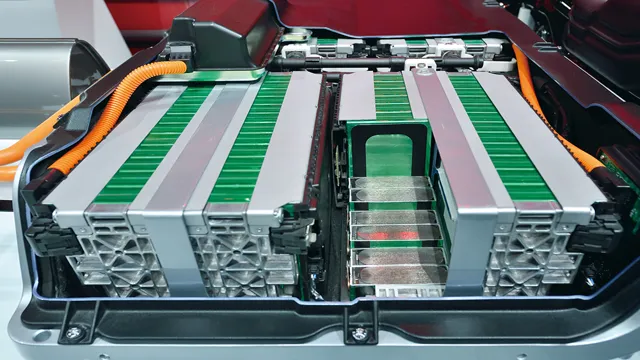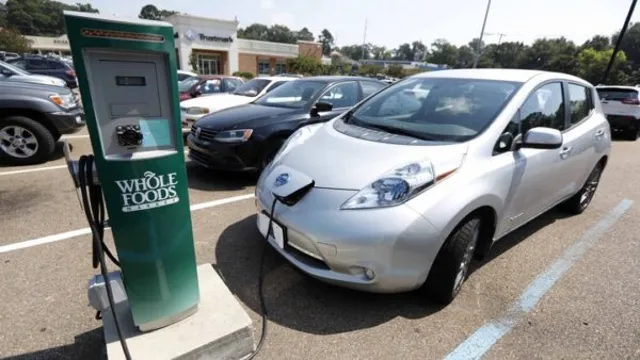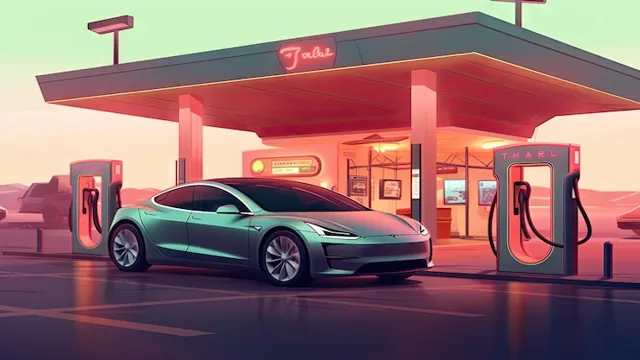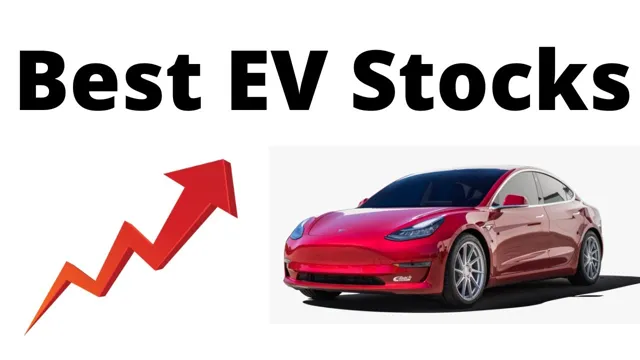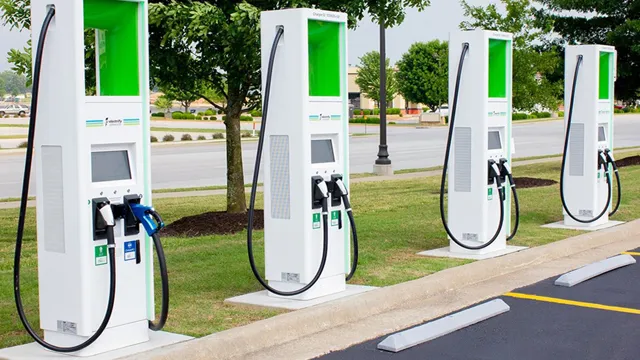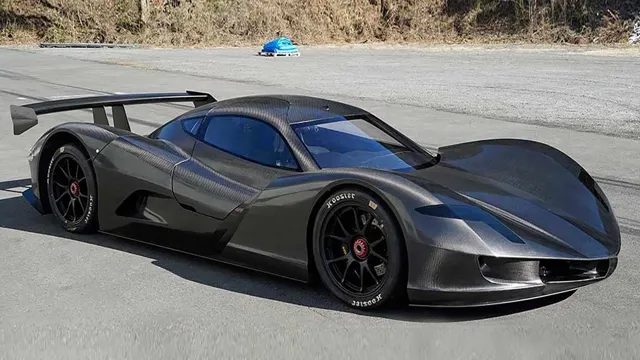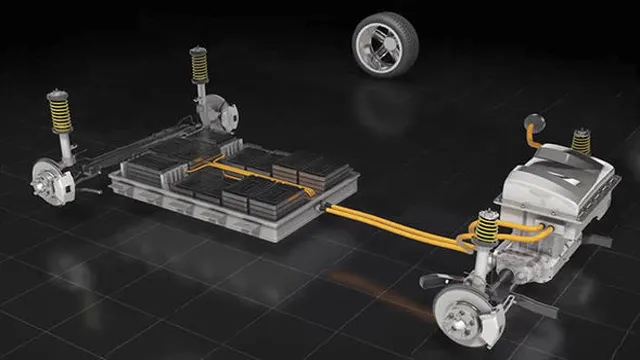Revolutionizing the Road: Exploring the Impressive Advancements of Electric Car Battery Technology
Electric cars are quickly gaining popularity and becoming the future of the automotive industry. With the rise of electric vehicles, the importance of their battery technology cannot be understated. The battery is the heart of an electric car and determining the best electric car battery technology is crucial for the industry’s success.
The competition for developing the best electric car battery technology is fierce, with several leading companies investing in research and development. The success of electric cars relies heavily on battery performance, durability, and safety. Therefore, new battery technology continues to emerge with enhanced features.
With the different types of electric car batteries available in the market today, choosing the best one can be a daunting task. Some of the factors to consider when choosing the best electric car battery technology include range, charging time, recyclability, and cost. The ideal electric car battery should offer a balance of these features while ensuring optimum performance for an extended period of time.
In this blog, we will explore the best electric car battery technology currently available in the market, highlighting their features, strengths and weaknesses. We will also discuss emerging battery technologies and their potential to transform the electric vehicle industry. By the end of this blog, you should be able to make an informed decision about the best electric car battery technology for your vehicle.
Overview of Electric Car Battery Technology
When it comes to the best electric car battery technology, several options are available. Lithium-ion batteries are currently the most popular type of battery used in electric vehicles. They are known for their high energy density, which translates into longer driving ranges.
Lithium-ion batteries can also be recharged quickly and have a long lifespan. Another type of battery used in electric cars is the solid-state battery, which uses a solid electrolyte instead of a liquid one. Solid-state batteries have the potential to surpass lithium-ion batteries in terms of energy density, safety, and lifespan.
However, they are still in the early stages of development and are not yet widely available. Other types of electric car batteries include nickel-metal hydride and lead-acid batteries, which are less efficient and have a shorter lifespan compared to lithium-ion batteries. Overall, the best electric car battery technology is still evolving, and we can expect to see even more advances in the future.
What Makes an Electric Car Battery Great?
Electric car batteries are a critical piece of technology that powers electric vehicles. The best electric car batteries are those that can provide a high energy density, meaning more power can be stored in a smaller package. This is because the more energy that can be stored, the longer a vehicle can travel between charges, making it more practical for everyday use.
Lithium-ion batteries are currently the most common type of electric car battery due to their high energy density, long lifespan, and low maintenance requirements. However, solid-state batteries are emerging as a potential replacement in the future due to their even higher energy density and improved safety. Additionally, advanced battery management systems are necessary to ensure that electric car batteries operate at their optimal capacity and deliver the best possible performance.
Overall, a great electric car battery should combine high energy density, long lifespan, low maintenance, and safe operation to provide the best possible driving experience for owners.
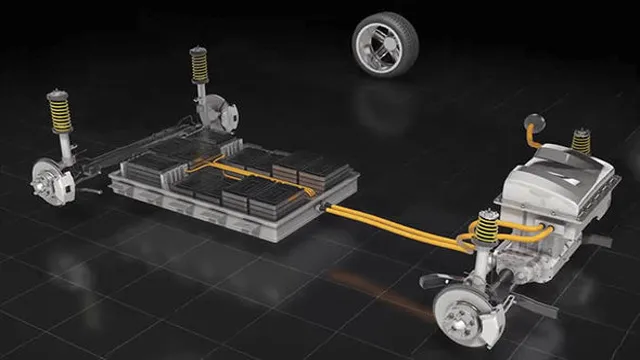
Types of Electric Car Batteries
Electric car batteries are a crucial component of any electric vehicle. There are several types of electric car batteries available in the market, with different specifications and features. One popular type of battery used in electric vehicles is Lithium-Ion batteries.
These batteries have a high energy density and longer lifespan, making them ideal for electric cars. Another type of battery is Nickel-Metal Hydride, which is commonly used in hybrid cars. These batteries are less efficient and have a shorter lifespan than Lithium-Ion batteries but are more affordable.
Moreover, Sodium-Nickel Chloride batteries are gaining popularity in the market because of their high energy density and long lifespan. They are also cheaper to produce and more sustainable than Lithium-Ion batteries. The choice of battery depends on the car’s requirements, range, and cost.
While electric vehicles are more expensive than traditional cars, they save money in the long run by reducing carbon emissions and fuel costs. As technology advances, we can expect to see more innovative and sustainable battery solutions in electric cars.
Top Electric Car Battery Technologies
When it comes to the best electric car battery technology, there are a few top options out there. First up is lithium-ion, which is currently the most popular choice due to its high energy density and long lifespan. Another promising technology is solid-state batteries, which use a solid electrolyte instead of the traditional liquid one found in most batteries.
This allows for increased safety and a potentially longer lifespan. Meanwhile, other manufacturers are experimenting with alternatives such as hydrogen fuel cells, which can produce electricity through a chemical reaction between hydrogen and oxygen. While these alternatives are still in development, they hold the potential for significant advancements and a more sustainable future for electric vehicles.
Overall, the electric car battery technology is continually advancing, offering more options for consumers and improving the overall driving experience.
Tesla’s Lithium-ion Battery Technology
Tesla’s lithium-ion battery technology is undoubtedly one of the top electric car battery technologies on the market. The company has invested heavily in research and development to create a high-performance battery that is not only energy-efficient but also cost-effective. With its advanced chemistry and engineering, Tesla’s batteries offer exceptional range and power, making its electric vehicles some of the best in the industry.
The company employs a unique manufacturing process to produce batteries that are uniform in quality, minimizing variations in performance and ensuring long-lasting, reliable power. In addition, Tesla has taken a holistic approach to battery technology, using its expertise to develop innovative charging infrastructure and battery storage solutions, further enhancing the performance and practicality of its electric vehicles. If you’re in the market for an electric car, Tesla’s lithium-ion battery technology is definitely worth considering.
Solid State Battery Technology: Advantages and Disadvantages
One of the most exciting developments in electric car battery technology is the advent of solid-state batteries. These batteries have a few key advantages over traditional lithium-ion batteries, including increased energy density, faster charging times, longer lifespan, and improved safety. This is because solid-state batteries replace the liquid electrolyte found in traditional lithium-ion batteries with a solid one, which reduces the risk of battery fires and enables more efficient energy transfer.
However, there are also some disadvantages to solid-state batteries, including higher production costs and the challenge of scaling up production. Overall, solid-state batteries represent a promising technology that could revolutionize the electric vehicle industry, but there are still many challenges that need to be overcome before they become widely available. Despite this, it’s clear that the future of electric cars will depend on further advancements in battery technology, and solid-state batteries are likely to play a key role in this.
Hydrogen Fuel Cell Technology: How It Compares to Batteries
When it comes to electric car battery technologies, there are a few that stand out. Lithium-ion batteries are at the forefront and are currently the most commonly used in electric vehicles. They are known for their high energy density and relatively low cost, making them an attractive option for manufacturers.
Another battery technology worth mentioning is solid-state batteries, which are still in development but have the potential to provide even higher energy densities and faster charging times. Additionally, nickel-cobalt-aluminum batteries are gaining attention due to their increased safety and durability compared to traditional lithium-ion batteries. Ultimately, the choice of battery technology depends on a variety of factors, including cost, performance, and environmental impact.
Looking Ahead to the Future of Electric Car Battery Technology
The continuous development of electric car battery technology is promising, with manufacturers constantly looking for ways to improve driving range, charging time, and overall performance. Currently, the best electric car battery technology utilizes lithium-ion cells, which stand out for their high energy density, long life span, and low maintenance needs. However, there are still some limitations to lithium-ion batteries that hinder the widespread adoption of electric cars.
Fortunately, there are new materials being researched and tested, such as solid-state electrolytes, silicon anodes, and lithium-sulfur cells, which could potentially solve these issues and revolutionize the industry. As for the future, the best electric car battery technology may look like a combination of different chemistry and manufacturing techniques, tailored for specific applications and consumer needs. The ultimate goal is to provide electric cars with greater range, faster charging times, and increased safety, paving the way towards a sustainable and electrified transportation system.
Emerging Battery Technologies to Watch Out For
As electric cars become more mainstream, the demand for advanced battery technology increases. While Lithium-ion batteries are commonly used in electric cars today, emerging battery technologies are being developed to meet the challenges of the future. One promising technology is Solid State batteries, which uses a solid electrolyte instead of liquid, making it safer and more efficient.
Another option is flow batteries, where energy is stored in electrolyte solutions that are pumped through the battery, increasing the battery’s capacity and making it easier to recharge. Additionally, research is being done on sodium-ion batteries, which are more abundant and cheaper than Lithium-ion batteries. As these emerging technologies continue to develop, the future looks bright for a more sustainable and efficient electric car industry.
The Role of Artificial Intelligence in Electric Car Batteries
Artificial Intelligence (AI), Electric Car Batteries, Future of Electric Car Battery Technology. The use of Artificial Intelligence (AI) is becoming increasingly prevalent in the world of electric car batteries. AI technology is being used to optimize battery performance, increase efficiency, and monitor the health and lifespan of the battery.
As electric cars become more popular, the need for improved battery technology is crucial. The use of AI can help address some of the challenges associated with electric car batteries, including range anxiety, charging time, and cost. By analyzing data on driving behavior and battery performance, AI algorithms can predict how much energy is needed for a trip, and optimize the use of the battery to maximize range.
AI can also be used in battery manufacturing to improve quality and reduce costs, resulting in more affordable electric vehicles. Looking ahead to the future of electric car battery technology, AI will play an increasingly important role in making electric vehicles more practical, affordable, and efficient.
Final Thoughts on Electric Car Battery Technology
While there have been many advancements in electric car battery technology, the best technology currently available is lithium-ion batteries. These batteries offer a high energy density and a longer lifespan compared to other options. Additionally, lithium-ion batteries are more environmentally friendly since they can be recycled and do not contain toxic substances.
Tesla, for example, has made significant strides in improving lithium-ion battery technology with their innovative designs and manufacturing processes, making them a leader in the electric car industry. While there is still room for improvement in terms of energy storage capacity and charging time, lithium-ion batteries remain the best option on the market today. As the demand for electric cars continues to grow, advancements in battery technology will only continue, providing consumers with even better options in the future.
Conclusion
In conclusion, the race for the best electric car battery technology is one that has been ongoing for years. While some may argue that one technology is superior to another, the truth is that the industry is constantly evolving and new advancements are being made every day. The key to making electric cars a viable option for all drivers lies in finding a battery solution that is efficient, cost-effective, and sustainable.
So, whether it’s lithium-ion, solid-state, or something entirely new, the best electric car battery technology is yet to be discovered. But one thing is for sure, the future of electric cars is bright, and we can’t wait to see what the next chapter holds.”
FAQs
What is the current state of electric car battery technology?
The current state of electric car battery technology is rapidly advancing, with new developments such as solid-state batteries and improved lithium-ion batteries on the horizon.
How does the battery technology impact the range and performance of electric cars?
Battery technology plays a critical role in the range and performance of electric cars. Advances in battery technology have resulted in longer ranges and improved acceleration for electric cars.
What are the benefits of owning an electric car with advanced battery technology?
The benefits of owning an electric car with advanced battery technology include lower operating costs, reduced emissions, and the ability to charge the car quickly and conveniently.
How does the cost of electric car battery technology compare to traditional gasoline engines?
Currently, electric car battery technology is more expensive than traditional gasoline engines. However, as more advancements are made in battery technology and production, the costs are expected to come down.

